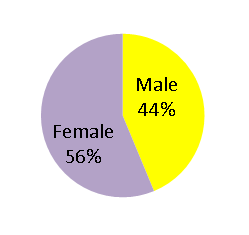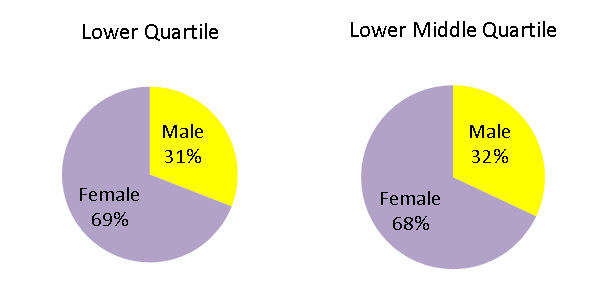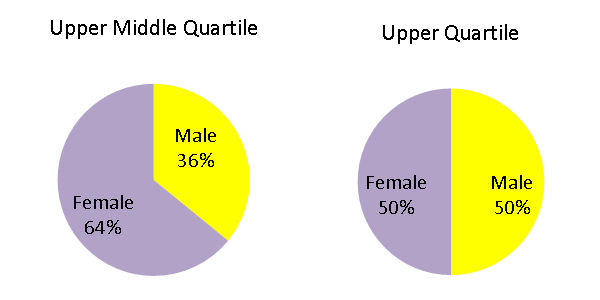
Court Ruling Encourages ADR Over Litigation
Lyons Davidson’s 2017 Gender Pay Gap Report and Commentary
Gender pay gap legislation, which was introduced in April 2017, requires all employers with 250 or more employees to publish their gender pay gap for workers in scope on the snapshot date, 5 April 2017.
Lyons Davidson headline gender pay figures
The following data is based on comparison of gross hourly rates of pay in the pay period including the snapshot date, 5th April 2017 and bonuses paid in the year up to 5th April:
| April 2017 | Median (%) | Mean (%) |
|---|---|---|
| Gender Pay Gap | 18 | 18.4 |
| Gender Bonus Pay Gap | 28.2 | 29.5 |
Lyons Davidson has structured job grades throughout the Company and has salary bands that are attached to each job grade. A review of pay by job grade gives us confidence that men and women are paid fairly and equally where they are doing equivalent jobs; average pay gaps are smaller than the overall mean and in some cases there is no gap.
The pay gap is impacted by hourly paid staff undertaking the roles of Accident Investigators, the majority of whom are male. When we remove this population from the snapshot data, the mean pay gap reduces to 11%.
Bonus allocation under the annual discretionary bonus scheme is linked to performance measures – the annual appraisal score being one key indicator. Within the Claimant Personal Injury department there is a quarterly bonus scheme as opposed to the annual bonus scheme and this scheme has clear criteria for each team and job type. Having analysed the population that received a bonus (either annual discretionary or quarterly), the top 30 highest is made up of 11 men and 19 women. The overall proportion split is shown below:
Proportion of males/females receiving a bonus in the year up to 5 April 2017

Under the gender pay gap legislation, we are also required to sort gross hourly rates of pay for the population on the snapshot date, 5 April 2017, from lowest to highest, split them into four equal quarters and then report the proportion of men and women in each quartile. Our pay quartiles are as follows:


Our gender split as at the snapshot date, 5th April 2017, was 63% female and 37% male (based on full-pay relevant employees included in our data set i.e. those that did not receive a reduced rate of pay due to unpaid leave or absence). 52% of our senior managerial staff (including partners and Directors) are women and pay at senior level (upper quartile split) is equal for men and women.
The largest job types within Lyons Davidson are Paralegals and Support Staff. The split of men and women in these roles is 34:64 and 45:54 respectively. We have a number of salary structures (predominantly at entry level) which apply to legal and support roles. This ensures equal pay and progression in these roles for men and women (subject to appropriate performance).
Our continued commitment to ensuring gender equality
Our pay gap is close to the current UK average pay gap reported by the ONS (for all employees – full time and part time).
We are committed to promoting equal opportunities in employment, as detailed in our Equal Opportunities and Diversity Policy.
Our flexible working policy provides our people, irrespective of gender, the ability to balance their working life with other priorities, including parental and other caring responsibilities, life-long learning, charity work and other interests. We support and encourage the development and progression of our people and we focus on this specifically through 1-2-1s and our appraisal processes. We are confident that our existing recruitment process is fair and consistent and adheres to our Equal Opportunities Policy. We are introducing a new recruitment system which will allow a greater level of diversity reporting and provide additional options with respect to ensuring unbiased recruitment at all levels. We have been instrumental in setting up the national Legal Apprentice Scheme and we have Apprentice Schemes for legal and non-legal roles within our business to ensure that we encourage people from all backgrounds and with different skill sets.
We review our salary bands on an annual basis and take into account sector appropriate market data. We will continue to conduct annual band reviews and also targeted reviews to ensure that our overall pay gap and any gaps existing by job grade are reduced over time.
Please complete this form, including a brief description of how we can help you, and we will contact you as soon as we can to discuss the matter informally and without charge.
"*" indicates required fields